黄山市2019届高三毕业班第一次质量检测英语试题 黄山一测英语试题
黄山市2019届高三毕业班第一次质量检测英语试题整理,近期很多学校都组织了学生进行了高三年级的模拟考试,本文,伊顿教育小编为大家整理了黄山市2019届高三毕业班第一次质量检测英语试题 黄山一测英语试题,下面是具体试题,同学们可以参考本文进行测试,希望能帮到大家!也希望同学们在高三那这一年中能够踏踏实实刷题,认认真真备考!

黄山市2019届高三毕业班第一次质量检测英语试题
(考试时间:120分钟 试卷: 150分)
注意事项:
1. 答卷前,考生务必将自己的姓名、准考证号填写在答题卡上。
2. 回答选择题时,选出每小题答案后,用铅笔把答题卡上对应题目的答案标号涂黑。如需改动,用橡皮擦干净后,再选涂其他答案标号。回答非选择题时,将答案写在答题卡上,写在本试卷上无效。
第一部分 听力(共两节,30分)
做题时,先将答案标在试卷上。录音内容结束后,你将有两分钟的时间将试卷上的答案转涂到答题卡上。
第一节 (共5小题;每小题1.5分,7.5分)
听下面5段对话。每段对话后有一个小题,从题中所给的A、B、C三个选项中选出较佳选项。听完每段对话后,你都有10秒钟的时间来回答有关小题和阅读下一小题。每段对话仅读一遍。
例:How much is the shirt?
A. £ 19. 15. B. £ 9. 18. C. £ 9. 15.
答案是 C。
1. What does the man probably like?
A. Playing basketball. B. Playing football. C. Swimming.
2. What does the man mean?
A. Jane is eager to return home.
B. Jane is on her way home.
C. Jane won’t spend Christmas at home.
3. What does the woman do?
A. An engineer. B. An editor. C. A teacher.
4. What does the man want to borrow?
A. A ruler. B. A pencil. C. A pen.
5. What can we learn about the man?
A. He missed the lecture completely.
B. He was late for the lecture.
C. He attended the lecture on time.
第二节(共15小题;每小题1.5分,22.5分)
听下面5段对话或独白。每段对话或独白后有几个小题,从题中所给的A、B、C三个选项中选出较佳选项。听每段对话或独白前,你将有时间阅读各个小题,每小题5秒钟;听完后,各小题将给出5秒钟的作答时间。每段对话或独白读两遍。
听第6段材料,回答第6、7题。
6. Why is Sam back home early today?
A. He doesn’t feel very well.
B. Allan will help him with his math.
C. His teachers will have a meeting.
7. What will Sam help his mother do?
A. Do the dishes. B. Wash the potatoes. C. Cut the tomatoes.
听第7段材料,回答第8、9题。
8. Where does this conversation probably take place?
A. On an airplane. B. On the subway. C. On a city bus.
9. Why is the woman embarrassed?
A. She can’t help the man.
B. She finds the man attractive.
C. She has to ask the man to put his shoes back on.
听第8段材料,回答第10至12题。
10. What does the woman like to do on the Big Beach?
A. Sit in the sun. B. Watch the waves. C. Observe the seabirds.
11. When do the speakers plan to leave?
A. On Friday. B. On Saturday. C. On Sunday.
12. How will the speakers go to the beach?
A. By bus. B. By car. C. By bike.
听第9段材料,回答第13至16题。
13. What is the woman?
A. An actress. B. A producer. C. A hostess.
14. What does George probably like to do least?
A. Make movies. B. Do commercials. C. Act in plays.
15. What do many actors do according to George?
A. They act in bad movies for higher payment.
B. They produce films besides acting.
C. They do TV and radio ads.
16. What does George think of the life in Los Angeles?
A. It’s cheap. B. It’s a little dear. C. It’s uncomfortable.
听第10段材料,回答第17至20题。
17. What was the speaker’s first job?
A. Shinning shoes. B. Washing plates. C. Cleaning tables.
18. What was one of the speaker’s father’s standards?
A. The speaker must work six days a week.
B. The speaker should never be late for work.
C. The speaker must study hard in his spare time.
19. What did the speaker ask his father to do one day?
A. To pay him for his work.
B. To give his friends free drinks.
C. To let him have meals in the restaurant.
20. Why did the speaker’s father refuse his request?
A. The speaker had made some mistakes.
B. The speaker had failed to meet the requirements.
C. The speaker’s father thought it was the speaker who should pay.
第二部分 阅读理解(共两节,40分)
第一节 (共15小题;每小题2分,30分)
阅读下列短文,从每题所给的A、B、C和D四个选项中,选出较佳选项。
A
Throughout the year, a number of Youth Exchanges activities are held by an organization— The International Voluntary Service. These activities give small groups of 4¬5 young people the opportunity to take part in volunteering trips abroad for an average of two weeks. These young people are joined by 4¬5 young people from 3¬4 other nationalities and will be a wonderful intercultural experience in a safe environment.
Example Youth Exchanges:
Youth Exchange 1
Location:Ireland
Other nationalities: Spain,Italy,Hungary
Theme: Focuses on the topic of community reconstruction and community activities—exploring how local issues facing our communities are connected to global issues. The group will also learn about the eco¬village as an example of a community and take part in team¬building activities.
Youth Exchange 2
Location:France
Other nationalities: Bulgaria,Italy
Theme:Organic gardening & continual living. This project will take place in a natural park,where the group will take part in gardening activities and games about continuous development.
Youth Exchange 3
Location:Macedonia
Other nationalities: Serbia,Turkey,Ireland
Theme:Foster(培养) social inclusion(融入)and motivate personal development of young people through sports and outdoor activities. Promote outdoor activities as a tool to help inclusion of young people with fewer opportunities.
Youth Exchange 4
Location:Italy
Other nationalities:Bulgaria,Greece
Theme:A social-¬environmental project that intends to promote social inclusion and continuous development,regarded as a process of civil rights and active citizenship. Over 10 days,the group will take part in activities to raise awareness(意识) about the effect of our behavior on the environment.
21. What do you focus on when travelling in France?
A. Rebuilding communities. B. Gardening work.
C. Civil rights. D. Developing social inclusion.
22. If you are interested in protecting the environment,you can take part in________.
A. Youth Exchange 1 B. Youth Exchange 2
C. Youth Exchange 3 D. Youth Exchange 4
23. Which nationality are Youth Exchanges most popular with?
A. France. B. Spain. C. Italy. D. Ireland.
#p#副标题#e#
B
Is smile just a facial expression? Of course not! It is not only used to express pleasure, affection, and friendliness, but also the commonest way to show our good will perfectly without saying anything. A Chinese saying runs:“Never hit a person who is smiling at you.” It is a time-proven fact that smile is a language all its own—a universal language—understood by the people of every nation in the world. We may not speak the same tongue as our foreign neighbors, but we smile in the same tongue. We need no interpreter for thus expressing love, happiness, or good will.
One day while shopping in a small town in southern California, it was my misfortune to be approached by a clerk whose personality conflicted with mine. He seemed quite unfriendly and not at all concerned about my intended purchase. I bought nothing, and marched angrily out of the store. On the outside stood a young man in his early twenties. His expressive brown eyes met and held mine, and in the next instant a beautiful, brilliant smile covered his face. The magic power of that smile made all bitterness within me melt, and I found the muscles in my own face happily responding. “Beautiful day, isn’t it?” I remarked, in passing. Then, obeying an impulse(冲动), I turned back. “I really owe you a debt of gratitude,” I said softly. His smile deepened, but he made no attempt to answer. A Mexican woman and two men were standing nearby. The woman stepped forward and eyed me inquiringly. “Carlos, he no speak English,” she volunteered. “You want I should tell him something?” At that moment I felt changed. Carlos’ smile had made a big person of me. My friendliness and good will toward all mankind stood ten feet tall. “Yes,” my reply was enthusiastic and sincere, “tell him I said, ‘Thank you!’’’ “Thank you?” The woman seemed slightly confused.
I gave her arm a friendly pat as I turned to leave. “Just tell him that.” I insisted. “He’ll understand, I am sure!”
Oh, what a smile can do! Although I have never seen that young man again, I shall never forget the lesson he taught me that morning. From that day on, I became smile-conscious, and I practice the art diligently, anywhere and everywhere, with everybody.
24. The writer marched angrily out of the store because________.
A. he bought nothing B. he was unlucky to meet with a rigid clerk
C. he was unfriendly D. he conflicted with the clerk in the store
25. What do you think of the woman?
A. Curious and sincere with good English.
B. Helpful and curious with poor English.
C. Enthusiastic and diligent with good English.
D. Warm-hearted and diligent with poor English.
26. In the following paragraph, the writer may mention________.
A. how he used smile to solve problems
B. how hard he tried to look for the young man
C. the lesson Carols had taught him
D. how he became a big person of ten feet tall
27. What is the best title for the passage?
A. A rigid clerk. B. A powerful smile.
C. A helpful woman. D. An impressive young man.
C
We all have some people whom we respect very much, like our family members, our friends or our teachers.
Respect often means different things to different people. There are several aspects that many people can agree on, though. For example, at its most basic level, respect means being kind and considerate to others.
Respect can take many forms. Don’t make fun of others. Put yourself in other people’s shoes and think about how they feel. Remember the Golden Rule: treat others the same way you’d want to be treated.
Respect is important because it sets the proper stage for all our human interactions. Friendship, love, and even basic communication must all start with respect.
Everyone wants to be respected. To get respect, though, you must also show respect for others. It’s always a two-way street. You can’t be impolite to others and expect respect in return.
It’s easy to show respect. Be polite. Look for the best in people rather than concentrating on their mistakes. Show compassion to others and try to put their interests before your own. Make others comfortable when they’re uneasy. Help out whenever you can. When you pay it forward, amazing things can happen.
And be respectful to everyone. The world is an unbelievably huge place filled with billions of people, each one of whom is unique and special. And they all deserve your respect!
Be careful, though. Not everyone will show you respect all the time. In fact, you’ll probably see examples of impolite behaviour each and every day. How you respond to impolite behaviour, though, can make a huge difference.
If you choose to respond to impolite behaviour by acting rudely yourself, you’ve gained nothing. You’ve only continued the pattern of impolite behaviour and set a bad example. Instead, act respectfully and set a good example. Consistently acting respectfully might just help others learn from your example!
28. According to the Golden Rule, __________.
A. you’d better walk in others’ shoes
B. you can’t play jokes on other people
C. you should pay attention to your feelings
D. the way you are treated depends on yourself
29. By saying “It’s always a two-way street” in Paragraph 4, the writer probably wants to tell us “______”.
A. People should respect each other B. It is always safe to walk in the street
C. Some leave and others come back D. There is only one street to go through
30. The fifth paragraph is mainly written to tell us ______.
A. where to find respect B. how to correct mistakes
C. when to help others in time D. how to show respect for others
31. According to the passage, what should we do if someone is impolite to us?
A. Show him/her true respect. B. Leave him/her alone.
C. Be kind to him/her sometimes. D. Set a special example to others.
D
Food is extremely important to us human beings and rice is one of the main food in the world. Australian researchers have discovered a way to genetically engineer rice which would provide significant health benefits to more than half the world’s population.
A study undertaken at the University of Tasmania, published in a respected journal of the National Academy of Sciences, discovered a method to increase the resistant starch (抗性淀粉)content in rice, making it more digestible and leading to lower rate of diabetes (糖尿病)and overweight.
Steven Smith, the lead author of the study and a foreign expert for the Chinese government who has been appointed to work on crop improvement projects by the Chinese Academy of Sciences, said increasing the higher resistant starch content gave this “designer” rice many added health benefits. “We have discovered that we can increase the amount of resistant starch in cooked rice, which could provide health benefits for a large number of people in Asia and beyond,” Smith said in a media release on Friday. “The same approach can be adapted for use in other cereals, including wheat. Not only can it have benefits for diabetes and obesity, but also for disorders of the bowel(肠)including cancer.”
Rice is the main food for more than half the world’s population, providing much of the world with most of their calories. Smith said that as the rate of diabetes and obesity in Asian countries continued to grow, his “designer” rice could provide a way to limit health problems.
“Not only does resistant starch reduce the possibility of a ‘sugar hit’ but it also reduces the appetite and promotes the growth of the healthy germs.” Smith said.
Smith divides his time between the University of Tasmania and his research lab in Beijing where he hopes to make significant advance in sustainable (可持续的)living.
32. What do we know about the study?
A. It is part of Chinese crop improvement projects.
B. It will have a significant effect on crop researches.
C. It was jointly(联合地)carried out by Australia and China.
D. It helps solve the food problem for over half of the world’s population.
33. Based on the text, the resistant starch ________.
A. exists in large amounts in cooked rice
B. decreases the possibility of a “sugar hit” and provides more calories
C. is helpful in digestion and lowers the rate of overweight and diabetes
D. increases people’s appetite and improves the growth of healthy germs
34. The underlined word “it” in Paragraph 3 refers to _________.
A. resistant starch B. cooked rice C. the approach D. media release
35. Where does this text probably come from?
A. An environmental report. B. A medical journal.
C. An engineering textbook. D. An agricultural magazine.
#p#副标题#e#
第二节 (共5小题;每小题2分,10分)
根据短文内容,从短文后的选项中选出能填入空白处的较佳选项。选项中有两项为多余选项。
Dream is strength. The strength can bring us wherever we want to get to and it can bring us a lot of wonders on our way to the place in our dreams.
Dream is beauty. Maybe you can see the things full of magic and maybe you will be moved by your own dream. 36 . But should we have our life without dreams? Of course not.
Everyone has his dreams and dreams are especially important to teenagers. As teenagers, you have many dreams. These dreams can be very big, such as winning the Nobel Prize. Or they can be small, for example, you may just want to become one of the ten best students in your class. 37 , what do you do with it? Do you ever try to make your dream come true?
Andrew Matthews, an Australian writer, tells us that making our dreams come true is the biggest challenge in our life. 38 , or that it is impossible for you to become a writer. 39 . In fact, everyone can fulfill his dream. The first thing you must do is remember what your dream is. Don’t let it leave your heart. Keep telling yourself what you want. Do this step by step and your dream will come true earlier because a big dream is made up of many small dreams.
You must never give up your dreams.
40 . But the biggest one comes from yourself. You need to decide what is the most important and face all these difficulties bravely.
A. These kinds of thoughts stop you realizing your dream
B. There will be many difficulties on the road to your dreams
C. Once you find a dream
D. You may think you’re not very good at some school subjects
E. Both big dreams and small ones are very important to our lives
F. The world is so real that the dreams seem weak
G. Your talent is one of the most important factors in living your dreams
第三部分 语言知识运用(共两节,45分)
第一节 完形填空(共20小题;每小题1.5分,30分)
阅读下面短文,从短文后各题所给的A、B、C和D四个选项中,选出可以填入空白处的较佳选项。
You never know what nature has prepared for you as a gift. Years ago, when walking alone on a beach in remote southwest Florida, I was so 41 to hear splashes(水溅声)coming from the water. As I walked in the 42 of the sounds, I saw a manatee(海牛)show its head out of the water, 43 a great snuffling(带鼻音的)breath. It seemed that it was in 44 and trying to get out of it.
I’d never seen a 45 like this before. I wanted to ask for help, but there was no one 46 . So I went into the shallow water and went toward the animal. I came 47 enough to make out the manatee. Then, a second manatee, much smaller, appeared beside it. 48 , the other manatees were also moving toward me. Soon Iwas 49 by several manatees. I could clearly see the larger manatee 50 the little one up with her flipper(鳍状肢)and pushed it to the surface beside me.
As the two slipped underwater, two other manatees moved up from behind, one on either side,
51 gently against my body as they swam past. They circled and 52 the action, this time 53 by the mother and her baby. I held my hand out touching their back as they passed me. Since they obviously enjoyed touching me, I began 54 each of them as they swam by.
I stood there enjoying the scene, 55 to move, until finally the rising tide 56 me back to the shore. Later I knew exactly what took place that morning. The manatees involved me in their celebration of a birth and I was welcome to meet the 57 member of their family.
During that unexpected scene, I felt more involved in the rhythms of 58 on our earth than ever. Each year, I head for that 59 for a quiet little birthday picnic on the shore. After all, you never know who might 60 up for your party.
41. A. frustrated B. surprised C. embarrassed D. disappointed
42. A. direction B. condition C. middle D. side
43. A. making out B. putting out C. coming out D. letting out
44. A. force B. trouble C. loss D. action
45. A. look B. feel C. scene D. smell
46. A. in hand B. in sight C. in the way D. in the distance
47. A. close B. soon C. quick D. straight
48. A. Luckily B. Personally C. Unexpectedly D. Sadly
49. A. watched B. surrounded C. attacked D. separated
50. A. turn B. eat C. throw D. hold
51. A. rubbing B. preventing C. surfing D. comforting
52. A. practiced B. changed C. repeated D. showed
53. A. seen B. followed C. taught D. ordered
54. A. moving B. hitting C. catching D. touching
55. A. unwilling B. ready C. unable D. afraid
56. A. invited B. forbade C. forced D. helped
57. A. best B. oldest C. toughest D. newest
58. A. life B. music C. world D. development
59. A. boat B. hill C. beach D. manatee
60. A. build B. show C. look D. step
第二节(共10小题;每小题1.5分,15分)
阅读下面短文,在空白处填入1个适当的单词或括号内单词的正确形式。
Positive thinking does not mean you have to find every idea absolutely wonderful.
It 61 (do) mean you have to be ready to explore an idea and to try and bring out whatever good features it has .The next step might be to find the 62 (weak) in the idea and to try and strengthen them, rather than use them 63 (simple) as an excuse for rejecting the whole idea. Finally, the idea, after it 64 (explore), may not be used because there is a 65 (good) one or because, good 66 it is, it is not suitable. There is 67 (something) wrong with being positive about an idea at first and then 68 (reject) it later, when you see that it won’t work.
It is easy to be negative and critical and too much talent is wasted in negative thinking. It is time we 69 (show) less respect for this kind of destructive thinking and focused 70 positive thinking more. So remember to think positively.
第四部分 写作(共两节,35分)
第一节 短文改错(共10小题,每小题1分,10分)
假定英语课上老师要求同桌之间交换修改作文,请你修改你同桌写的以下作文。文中共有10处语言错误,每句中较多有两处。每处错误仅涉及一个单词的增加、删除或修改。
增加:在缺词处加一个漏字符号(Λ),并在其下面写出该加的次。
删除:把多余的用斜线(\)划掉。
修改:在错的词下划一横线,并在该词下面写出修改后的词。
注意:1. 每处错误及其修改均仅限一词;
2. 只允许修改10处,多者(从第l1处起)不计分。
We live in the countryside. Most of which we see is beauty and nature. One of the exceptions to the beauty is the litter some people throw out their windows as they are driving on the roads. One of the few drawbacks to living in the countryside is that public service, such as litter collection, are little available than they are closer to the city.
A helping habit that my family practise regularly are picking up litter in our surrounding area. We have become so accustomed to do this that my little brother will often say, “There's some litter, Daddy, stop the car!” And we would often pull over and pick it up. It may seem strange, and we actually enjoy it. We pick up litter in parks, on sidewalks, practically anywhere. Once I even saw a complete stranger picking up litter close to where we live in. He smiled at me and said, “I saw you doing it, and it seemed like the good idea.”
第二节 书面表达(25分)
假定你是学生李华,准备参加“黄山国际登山节”( Huangshan International Mount Climb Day)志愿者招聘活动,活动主办方要求能够熟练运用英语,爱好运动,有的志愿者工作经验。请你用英语写一封自荐信。
内容包括:1.你的自荐理由。 2.你对活动的理解。
注意:1.词数100左右。
2.可以适当增加细节,以使行文连贯。
3.开头和结尾以为你写好,不计入总词数。
Dear sir,
Thank you for reading my letter.
Yours sincerely
LiHua
- 热门课程
- 热门资讯
- 热门资料
- 热门福利
-
 2025浙江文科459分能上什么大学?去年的录取分数线是多少?2025年浙江文科459的考生适合填报的院校有台州职业技术学院、湖州职业技术学院、浙江工商职业技术学院、浙江邮电职业技术学院、浙江工业职业技术学院,考生可以根据自己的分数和排名情况,合理的选择自己可能报考成功的院校,不要盲目追求高分院校,也不要低估自己的学习实力。 一、陕西浙江文科459分推荐
2025浙江文科459分能上什么大学?去年的录取分数线是多少?2025年浙江文科459的考生适合填报的院校有台州职业技术学院、湖州职业技术学院、浙江工商职业技术学院、浙江邮电职业技术学院、浙江工业职业技术学院,考生可以根据自己的分数和排名情况,合理的选择自己可能报考成功的院校,不要盲目追求高分院校,也不要低估自己的学习实力。 一、陕西浙江文科459分推荐 -
 2025浙江理科437分能上什么大学?去年的录取分数线是多少?2025年浙江理科437的考生适合填报的院校有湖州职业技术学院、浙江安防职业技术学院、浙江国际海运职业技术学院、浙江纺织服装职业技术学院,考生可以根据自己的分数和排名情况,合理的选择自己可能报考成功的院校,不要盲目追求高分院校,也不要低估自己的学习实力。
2025浙江理科437分能上什么大学?去年的录取分数线是多少?2025年浙江理科437的考生适合填报的院校有湖州职业技术学院、浙江安防职业技术学院、浙江国际海运职业技术学院、浙江纺织服装职业技术学院,考生可以根据自己的分数和排名情况,合理的选择自己可能报考成功的院校,不要盲目追求高分院校,也不要低估自己的学习实力。 -
 2025陕西高考文科416能上什么大学?去年的录取分数线是多少?2025年陕西高考文科416的考生适合填报的院校有西安工商学院、陕西科技大学镐京学院、银川科技学院、山东外国语职业技术大学、大连东软信息学院,考生可以根据自己的分数和排名情况,合理的选择自己可能报考成功的院校,不要盲目追求高分院校,也不要低估自己的学习实力。
2025陕西高考文科416能上什么大学?去年的录取分数线是多少?2025年陕西高考文科416的考生适合填报的院校有西安工商学院、陕西科技大学镐京学院、银川科技学院、山东外国语职业技术大学、大连东软信息学院,考生可以根据自己的分数和排名情况,合理的选择自己可能报考成功的院校,不要盲目追求高分院校,也不要低估自己的学习实力。 -
 浙江理科高考456分能上什么大学?要不要复读?高考成绩出来后,很多同学都在犹豫是再复读一年考个更好的学校,还是直接找个大学上,这个分数在竞争激烈的浙江高考里不算高,但有不少可能性,今天咱们就来详细说说456分在浙江能选哪些好学校,再客观分析一下复读到底行不行。
浙江理科高考456分能上什么大学?要不要复读?高考成绩出来后,很多同学都在犹豫是再复读一年考个更好的学校,还是直接找个大学上,这个分数在竞争激烈的浙江高考里不算高,但有不少可能性,今天咱们就来详细说说456分在浙江能选哪些好学校,再客观分析一下复读到底行不行。
-
 2022高考英语基础知识点!西安伊顿老师带你了解!2022高考英语基础知识点!西安伊顿老师带你了解!高中的英语是一个需要长期积累以及记忆的科目,在高考中只有针对这些知识进行一定的了解和积累,才可以在考试中取得好成绩。针对这种情况,小编请到了西安伊顿老师来给大家总结归纳一下关于高考英语基础知识点的记忆内容,希望对大家有所帮助。对于英语还是需要靠日
2022高考英语基础知识点!西安伊顿老师带你了解!2022高考英语基础知识点!西安伊顿老师带你了解!高中的英语是一个需要长期积累以及记忆的科目,在高考中只有针对这些知识进行一定的了解和积累,才可以在考试中取得好成绩。针对这种情况,小编请到了西安伊顿老师来给大家总结归纳一下关于高考英语基础知识点的记忆内容,希望对大家有所帮助。对于英语还是需要靠日 -
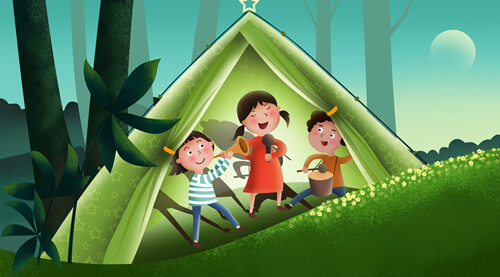 关于“呐喊与行动那个更重要”的辩论稿写作指导!一直以来,辩论稿的写作都是大家司空见惯的,但是也是很多同学容易忽视的。现在的语文作文考察的范围和广度越来越大,涉及到的文体也越来越多,因此大家在备考语文作文的时候,还是要增加自己的知识面,增加自己的见识。辩论稿大家见得比较多,但是在语言文字上以及结构上的学习,还是非常值得探究的,下面小编给大家分享了一则辩论稿,大家可以练习一下。
关于“呐喊与行动那个更重要”的辩论稿写作指导!一直以来,辩论稿的写作都是大家司空见惯的,但是也是很多同学容易忽视的。现在的语文作文考察的范围和广度越来越大,涉及到的文体也越来越多,因此大家在备考语文作文的时候,还是要增加自己的知识面,增加自己的见识。辩论稿大家见得比较多,但是在语言文字上以及结构上的学习,还是非常值得探究的,下面小编给大家分享了一则辩论稿,大家可以练习一下。 -
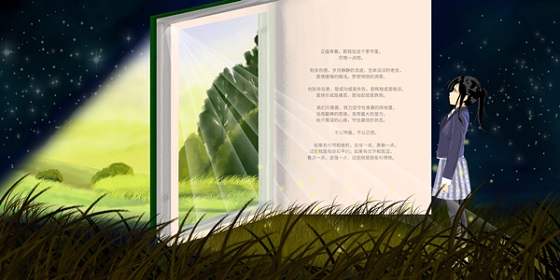 “直播带货”有关的作文写作指导!立意和审题指导!高中的作文写作更多的是来自于社会现象的思考,或者生活的思考,所以高中的同学在写作文的时候可以从生活细节入手,寻找素材,因为任何题目都是取之于生活,进而引发的一系列的思考行为。本次伊顿教育小编给大家分享的这篇作文也是一个社会现象的评述,材料内容是关于“直播带货”,这个大家都是不陌生的,而且有的同学也是参与者,所以对于此也是非常的熟悉的。下面我们可以来看看这篇作文写作的指导。
“直播带货”有关的作文写作指导!立意和审题指导!高中的作文写作更多的是来自于社会现象的思考,或者生活的思考,所以高中的同学在写作文的时候可以从生活细节入手,寻找素材,因为任何题目都是取之于生活,进而引发的一系列的思考行为。本次伊顿教育小编给大家分享的这篇作文也是一个社会现象的评述,材料内容是关于“直播带货”,这个大家都是不陌生的,而且有的同学也是参与者,所以对于此也是非常的熟悉的。下面我们可以来看看这篇作文写作的指导。 -
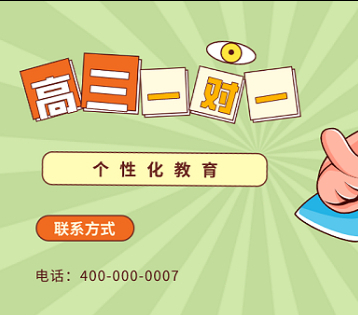 2021年9月山水联盟高三开学联考数学试卷及答案(原版)!2021年9月山水联盟高三开学联考已经结束,伊顿教育小编给大家整理了本次联考的数学试卷以及答案,各位相关的小伙伴可以参考一下。对于高三的学习,小编建议大家在每一次的考试之后,都能够仔细的分析一下自己的失分点,对于自己没有掌握的知识点可以尽早的掌握。
2021年9月山水联盟高三开学联考数学试卷及答案(原版)!2021年9月山水联盟高三开学联考已经结束,伊顿教育小编给大家整理了本次联考的数学试卷以及答案,各位相关的小伙伴可以参考一下。对于高三的学习,小编建议大家在每一次的考试之后,都能够仔细的分析一下自己的失分点,对于自己没有掌握的知识点可以尽早的掌握。










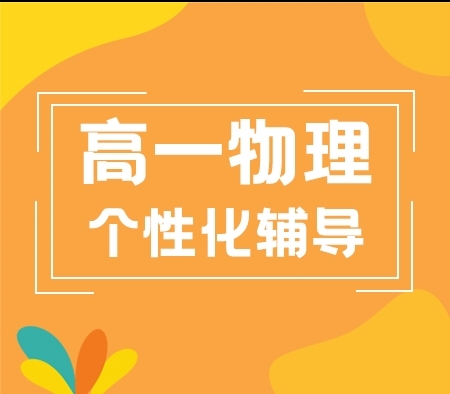
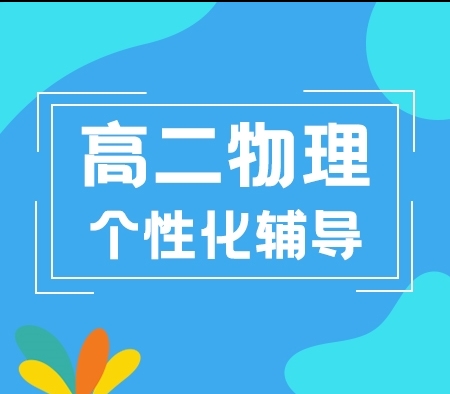
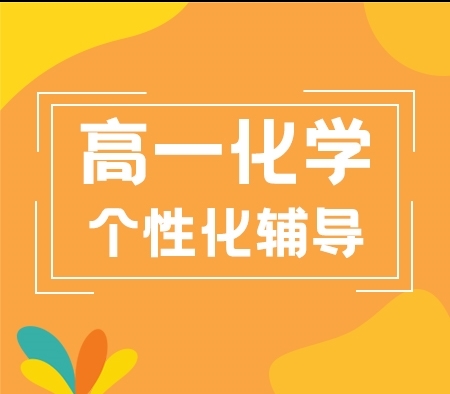
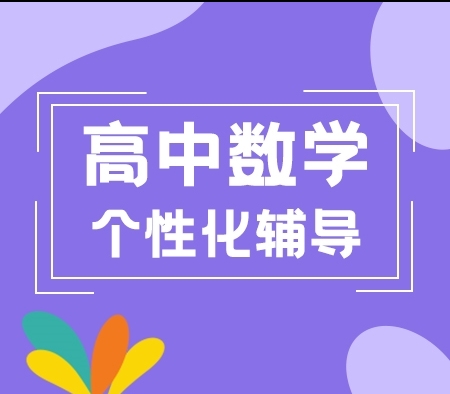






 All right reserved
All right reserved
